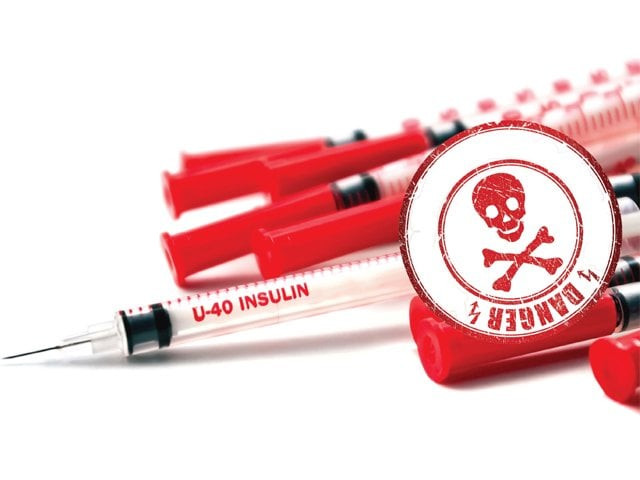Best practices: ‘Poor sterilisation methods risk infections’
Young Doctors write to Health Care Commission.

If we had proper sterilisation systems in hospitals, we could control [the spread of] hepatitis to a great degree, says a YDA leader. PHOTO: FILE
The letter stated that most hospitals, both public and private, do not have adequate arrangements to sterilise their equipment. This can cause many infectious diseases including hepatitis B and C among patients who visit these hospitals. Every hospital with a major surgery department should have a Central Sterilising and Services Department (CSSD). Yet not even the teaching hospitals have this department.
Recent bouts of load shedding have worsened matters. In minor operation theatres (MOTs), for dressing and stitching of minor wounds, the surgical equipment is used on several patients after simply rinsing them with plain water, the letter reads.
The use of non-sterile equipment can spread hepatitis at an alarming rate. “Sterilisation arrangements are particularly poor at the Punjab Dental Hospital and Lady Willingdon Hospital,” the letter reads.
Almost every patient at the dental hospital is examined using surgical instruments which, if not sterilised properly, could transmit diseases from one patient to the other. The letter states that the surgical equipment there is only dipped into a liquid, glutaraldehyde, to sterilise it after being used, and then reused on other patients. This practice is unsafe and sure to spread disease.
Most labour rooms in public hospitals too have no proper procedure for sterilising the equipment used there, the letter states. Rescue-1122 ambulances should be provided sterilised equipment as well, the letter suggests.

Hospitals are where patients get treatment. “Unfortunately in our case, many patients visit to get treated for one disease and go back carrying another,” the letter reads.
The YDA has requested the Health Care Commission to seek details regarding the procedure of sterilising equipment from the Health Department and hospitals. All teaching hospitals, at least, should be asked to set up CSSDs to control the spread of infectious diseases. “Otherwise, many people remain at the risk of contracting communicable diseases,” the letter says.
YDA leader Salman Kazmi, who wrote the letter, says only Sir Ganga Ram Hospital has a CSSD as yet and one was being installed at Mayo Hospital. Among private hospitals, only Ghurki Hospital had a proper CSSD. He says all private hospitals should also be directed to present details of how they sterilise their equipment.
“This is a matter of grave concern. If we had proper sterilisation systems in hospitals, we could control [the spread of] hepatitis to a great degree. There are as many as 30,000 unregistered dental surgeons in the province alone. They are contributing towards the spread of hepatitis. The authorities need to take note of this situation or we might face a very bleak situation regarding our health system in the years to come,” said Kazmi.
Published in The Express Tribune, June 3rd, 2013.



















COMMENTS
Comments are moderated and generally will be posted if they are on-topic and not abusive.
For more information, please see our Comments FAQ